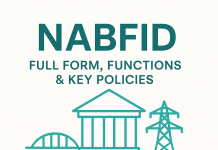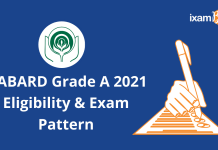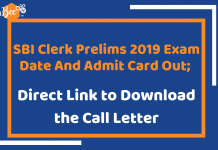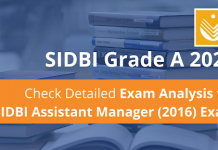Read here the best English Language Preparation tips for the ECGC PO exam 2022 for the Prelims & Mains.
The ECGC PO Phase 1 exam 2022 will be held on May 29, 2022. This gives us less than 3 weeks to prepare for the exam. Please note, that both Paper 1 and Paper 2 of the single-level examination will be taken on the same day. In this article, we will learn about some useful tips for English Language Preparation for the ECGC PO exam 2022.
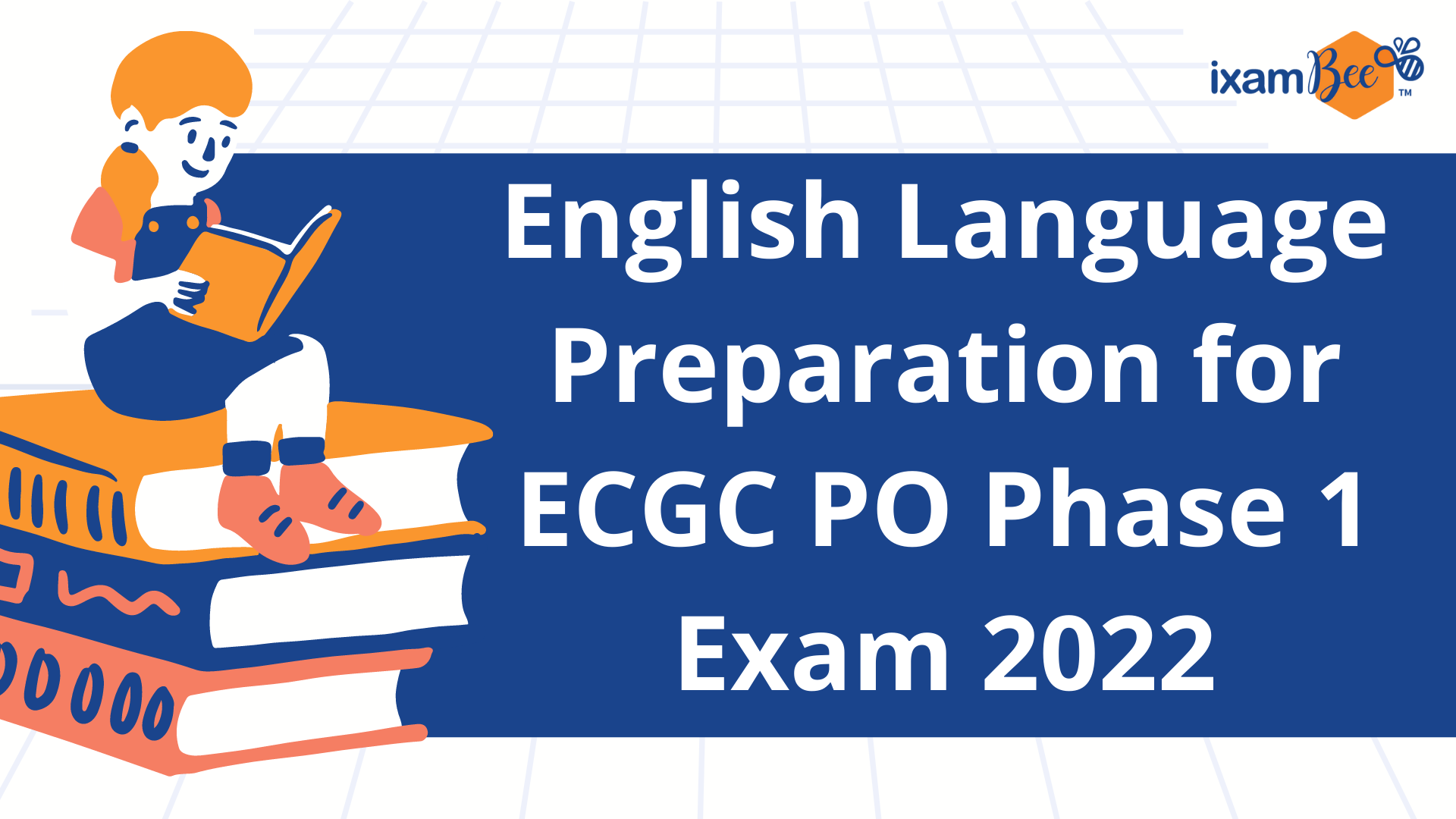
ECGC Online Exam Pattern
The ECGC PO exam will be carried out over two phases.
- Phase 1 – Multiple Choice Objective Test + Descriptive Test
- Phase 2 – Interview
Please note, that the English language will be assessed in both sections or papers in Phase 1. For your benefit, we have provided all the details below.
Objective Test (MCQs)
| Name of Test | Number of Questions | Maximum Marks | Duration |
| Reasoning Ability | 50 | 50 | 40 minutes |
| English Language | 40 | 40 | 30 minutes |
| Computer Knowledge | 20 | 20 | 10 minutes |
| General Awareness | 40 | 40 | 20 minutes |
| Quantitative Aptitude | 50 | 50 | 40 minutes |
| Total | 200 | 200 | 140 minutes |
Descriptive Paper (English Language)
You will be given 40 minutes to write an essay and a precis passage.
| Topics | Number of Questions | Marks |
| Essay Writing | One out of two options given | 20 |
| Precis Writing | One out of two options given | 20 |
You can learn more about the ECGC PO exam pattern 2022 at ixamBee!
English Language Syllabus
| Paper | Topic |
| Paper 1 (Objective) | Grammar Vocabulary Reading Comprehension Passage Making Error Spotting Jumble Words Sentence Framing Fill in the blanks |
| Paper 2 (Descriptive) | Essay Precis |
Expected Questions
In the table below, we have provided the no. of questions you may expect from each topic based on an analysis of past papers. This will help you to cognize how you should proceed with your preparation.
| Topic | No. of Questions |
| Reading Comprehension | 15 |
| Error Detection | 5 |
| Sentence Rearrangement | 5 |
| Word Swapping | 5 |
| Match the Column | 4 |
| Fill in the Blanks | 4 |
| Odd Sentences | 2 |
English Language Preparation for ECGC PO
- Begin by reviewing the ECGC PO previous year papers to understand what you can expect during your exam.
- Read the newspaper daily/watch the news in English.
- If you are not comfortable speaking English, you must push yourself to become fluent in it. In this way, you will automatically be able to form sentences faster and correctly.
- Read, read and then read some more. Read books, newspapers, articles and editorials whatever you like but it is important to cultivate a habit of reading to improve your language skills.
- Clear your grammar concepts if needed.
- Grammar is based on strict rules, so unless you know them, you will not be able to solve the questions correctly.
- Solve 1 grammar exercise every day.
- Solve between 5-8 Reading Comprehension passages every week.
- Practice will make you perfect. So, practice a variety of questions in order to hone your language skills.
- Time yourself when you solve a comprehension passage. It is important that you do not spend too much time on one section.
- Do not get overwhelmed, you can do it!!
Test Yourself
For your practice, we have provided a Reading Comprehension passage below.
Read the following passage carefully and answer the questions given below it. Certain words/ Phrases have been printed in bold to help you locate them while answering some of the questions.
One of the most unedifying sights in public life is lawmakers taking to organized disruption of legislative business. Such displays became common in Parliament in the past decade as political parties and legislators demonstratively advertised their points of view without recourse to debate. A number of crucial bills have taken an inordinate time to be enacted due to disruption, while others were not enacted despite a broad consensus — such as the Women’s Reservation Bill — due to the behaviour of a few naysayers.
Many sessions of Parliament in the recent past saw little business being done due to repeated disruption. In this context, Vice President Venkaiah Naidu’s exhortation to political parties to incorporate a model code of conduct for their legislators in State Assemblies and in Parliament is welcome. He suggested that the code should include stipulations on members not entering the well of the House, and desisting from sloganeering and unruly acts. If indeed parties adopt a code, it will go a long way in making parliamentary work meaningful. Otherwise, the general public will lose interest in the procedural aspects of parliamentary democracy and limit their participation to just voting in the elections. But the absence of disruption alone does not make for meaningful debate.
The current Budget session sailed through with minimal disruption. Yet the high productivity during the session came without sufficient deliberation over crucial bills, several of which were rushed through without vetting by parliamentary standing and select committees. These committees have in the past been useful in expanding discussion over laws with civil society and experts from various streams of the larger society. They have also facilitated enhanced cross-party coordination over issues. By not sending a single Bill among the 28 that were introduced and passed to a standing or select committee for scrutiny, the current session accentuated the trend that has minimized the importance of such committees over the last few years. Unlike the 15th Lok Sabha (2009-2014), when 71% of the bills were referred to such committees, in the 16th Lok Sabha, they constituted only a fourth of the overall number of bills. Time spent on debates in the current session in both the Lok Sabha and Rajya Sabha was barely a third of the overall business. This does not augur well for law-making. As Mr. Naidu has also pointed out correctly, deliberation is an important component of parliamentary democracy apart from legislation and the accountability of lawmakers. All three aspects must cohere for a thoroughgoing procedural democracy.
- Which of the given statements is/are accurate in context to the given article?
A) Disruption leads to a high business of Parliament in recent sessions
B) Due to disruption, a large number of crucial bills have taken a large amount of time to be enacted.
C) Behaviour of a few naysayers was the main reason behind the non-enactment of bills such as the Women Reservation Bill.
a) Only A
b) Only C
c) Both A&C
d) Both B&C
e) All of the above
2. According to the given article, what can be said about the suggestion given by Vice President Venkaiah Naidu?
A) He urged the political parties to incorporate a model code of conduct for their legislature in State assemblies and in Parliament.
B) With the code, the public will lose interest in procedural aspects of parliamentary democracy.
C) According to the code suggested, there should be some conditions on the members not entering the well of the house
a) Only B
b) Only A
c) Both A & C
d) Both A & B
e) All of these
3. “The maximum disruption was seen in the current budget session”. According to the article, the statement is-
a) Definitely true
b) Probably false
c) Probably true
d) Definitely false
e) Cannot be determined
Would you like to test yourself some more? don’t worry, we have got you covered, you can answer several such questions on the website if you take the ECGC PO mock test for free!! You can also find the solutions to these questions if you follow the aforementioned link.
Essay Topics for Practice
- Climate Crisis- Challenges and Solutions
- Disinvestment of PSUs in India
- Write an essay on 1 Indian Freedom Fighter and why s/he inspires you
- How has the Indian Premiere League changed the way we enjoy cricket in India?
- Do you enjoy Test Cricket more than the ODIs? Give reasons for your choice.
- Farm Laws: Impact of Farmer’s Protest on Various Stakeholders
- Inflation in the Indian Economy
- India’s foreign relations with her neighbours
- Growth of café-culture in India- Pros and Cons
- Should the concept of school uniforms be removed?
- Children should be taught to do simple household work from a young age. Discuss.
- Discuss an indigenous art form of your region/state
- Ways to encourage youth to take up sports as a career option
- India’s exit from RCEP with ASEAN
- Digital Payments in India– Issues & Opportunities
- Start-up Culture in India
- Is public transport better than private transport? Discuss.
- Growth of online newspaper culture in India- Pros and Cons
- Women and start-ups
- Is Veganism the future of the world?
- How does drinking soda affect your body? Discuss.
- Role of Regional Rural Banks (RRBs) in India’s economy
- What are the challenges to and of e-Commerce?
- Is there anything called “too much information?”
- Role of religious tourism in India its economy
- What challenges need to be overcome by India to become a Superpower?
- Effective and quick-result methods for population control in India
- Would you like to introduce Marxism/Communism in India?
- How can we avoid a water crisis in the future?
- What changes would you introduce to the Indian Education System?
ECGC PO Online Course
If you would like to engage in a guided study with the best faculty and top resources, be sure to take a look at ixamBee’s ECGC PO Online Course to understand how you can get the best study experience to achieve your goal.
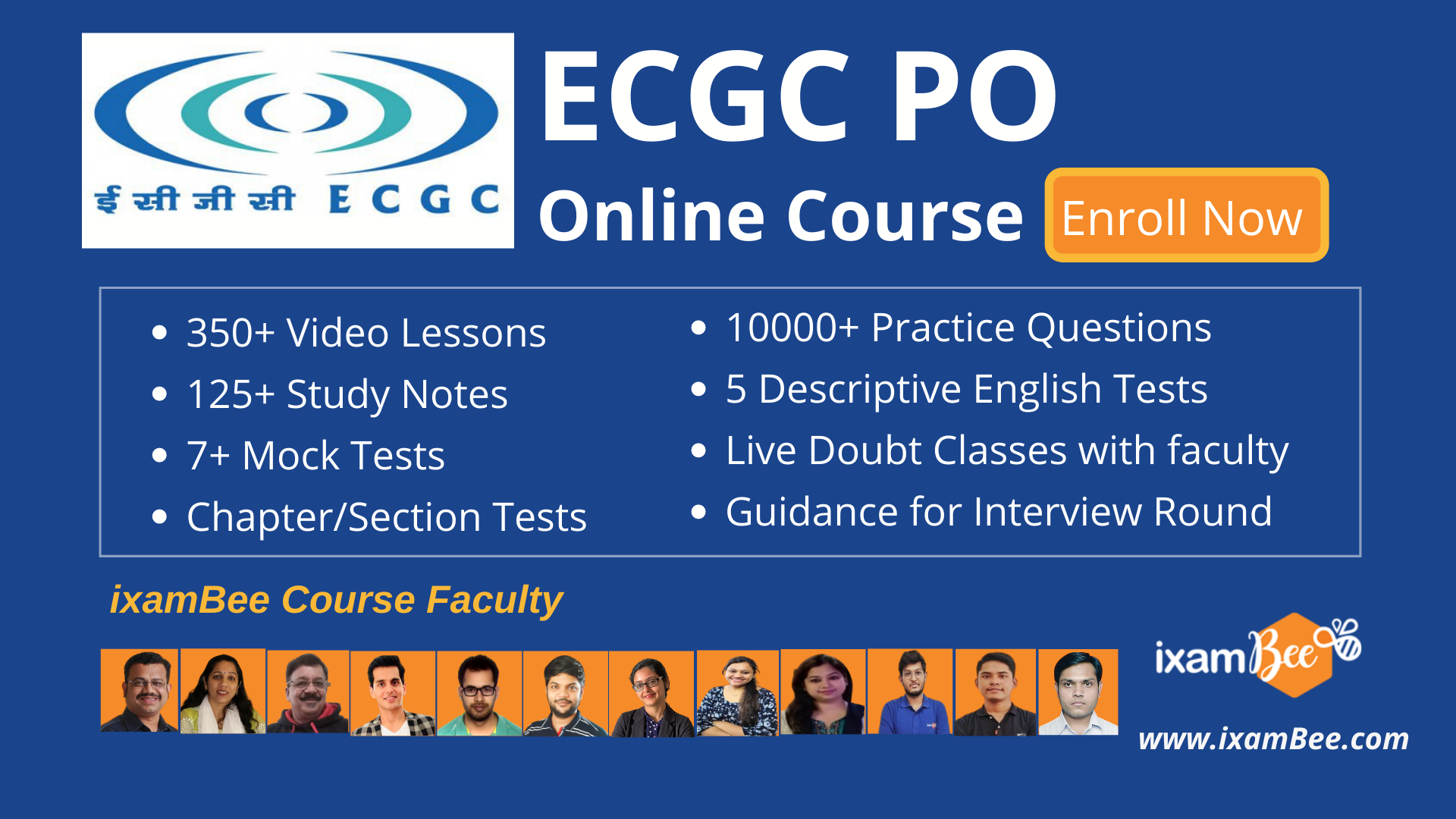
We hope these tips help you with your English Language preparation for ECGC PO 2022 exam.
if there is anything more you would like to know, you can find all the details at ixamBee!
We wish you all success!
At ixamBee, you can find free Online Test Series, GK updates in the form of BeePedia, as well as the latest updates for SBI PO, Bank Clerk, SSC, RBI, NABARD, and Other Government Jobs.
Also read:
How to Start Bank Exam Preparation? Strategy for ECGC PO and SBI Clerk
ECGC PO 2022: Preparation Strategy for Computer Knowledge
Previous Year Exam Analysis, Cut-off & Preparation Strategy for ECGC PO



